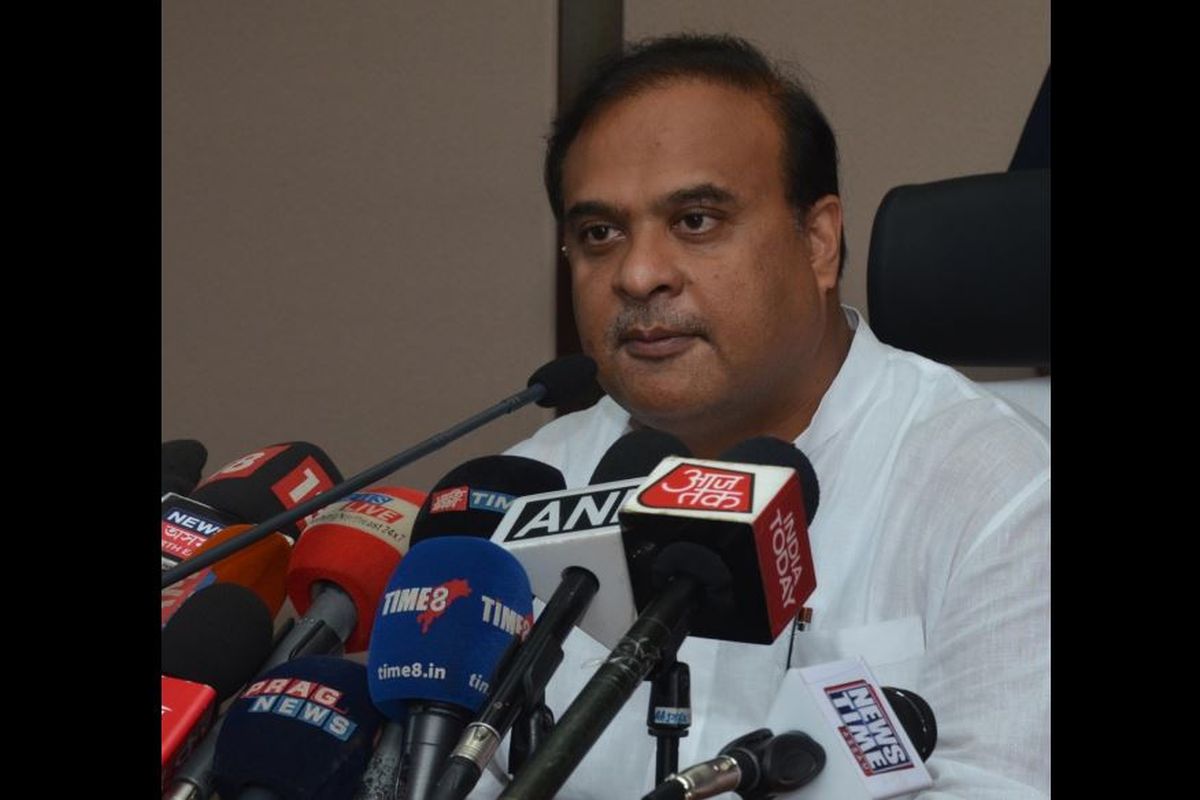Polling underway in 7 seats in NE, 14 % in initial hrs in Assam, Outer Manipur
Polling is underway for seven parliamentary seats of North East -- five from Assam and one each from Manipur and Tripura -- in the second phase on Friday.
Prudence would suggest that quite the most rational course of action is to effect a drastic update of syllabi in both categories of schools, and arguably even promote the study of Sanskrit.

BJP's northeast strategist and NEDA convener Himanta Biswa Sarma. (Photo: IANS)
The decision of the Bharatiya Janata Party government in Assam to shut down the state-run madrasas (Muslim theological schools) and Sanskrit tols’ (that teach the ancient language as well as Hindu religious scriptures) is intrinsically a two-pronged attack on religious orthodoxy to uphold the concept of secularism.
The timing of the move is carefully calibrated, i.e. when the party at the national level is floundering in search of an agreeable redefinition of citizenship 73 years after Partition. Hence the renewed ferment in Assam. Once integral to traditional learning, both the madrasas and the tols have over time been reduced to irrelevance. Having said that, Assam’s BJP government has opted for the drastic by deciding on their closure and then seeking to convert them to high schools and Higher Secondary schools.
The transition is easier contemplated than effected. The government may seek to make a point but it must pass the Constitutional test. Chief Minister Sarbananda Sonowal may arguably be in step with the times at least on this issue, but normally restive Assam will have to contend with the rising tide of condemnation from both sides of the communal divide. Theoretically, the state education minister, Himanta Biswa Sarma’s contention that “it is not a secular government’s job to provide religious education” cannot be faulted in this day and age.
Advertisement
Yet, there is a degree of double-think in the minister’s supplementary that teachers handling scriptures and other religious instruction in these institutions will continue to be employed till retirement… but not teach the subjects. Furthermore, traditional education in Assam will be hobbled by a quirky dichotomy. While it will be shutters down for 614 state-funded madrasas and about 100 tols, it will be business as usual for institutions run by individuals or NGOs, not to forget the religious orders.
Prudence would suggest that quite the most rational course of action is to effect a drastic update of syllabi in both categories of schools, and arguably even promote the study of Sanskrit. There is little doubt that both the madrasa and the tol are confined to narrow educational paths. The syllabus needs to have a contemporary relevance, indeed ought to prepare the groundwork for disciplines that are taught in colleges and universities.
This will ensure a utilitarian value to the search of learning. Indeed, dramatically modernised madrasas and tols will be a new facet to education in Assam and every state for that matter, most particularly in the states that skirt the Bangladesh border. Truth to tell, there has been a mushroom growth of madrasas both in West Bengal and Assam.
It bears recall that as West Bengal’s Chief Minister, Mr Buddhadeb Bhattacharjee had earnestly wanted to modernise the instruction imparted in madrasas and tols, but couldn’t make headway because of fears at Alimuddin Street that such educational reform might rock the party’s boat at the hustings and also alienate the orthodox segments of both communities. It is a hot potato.
Advertisement